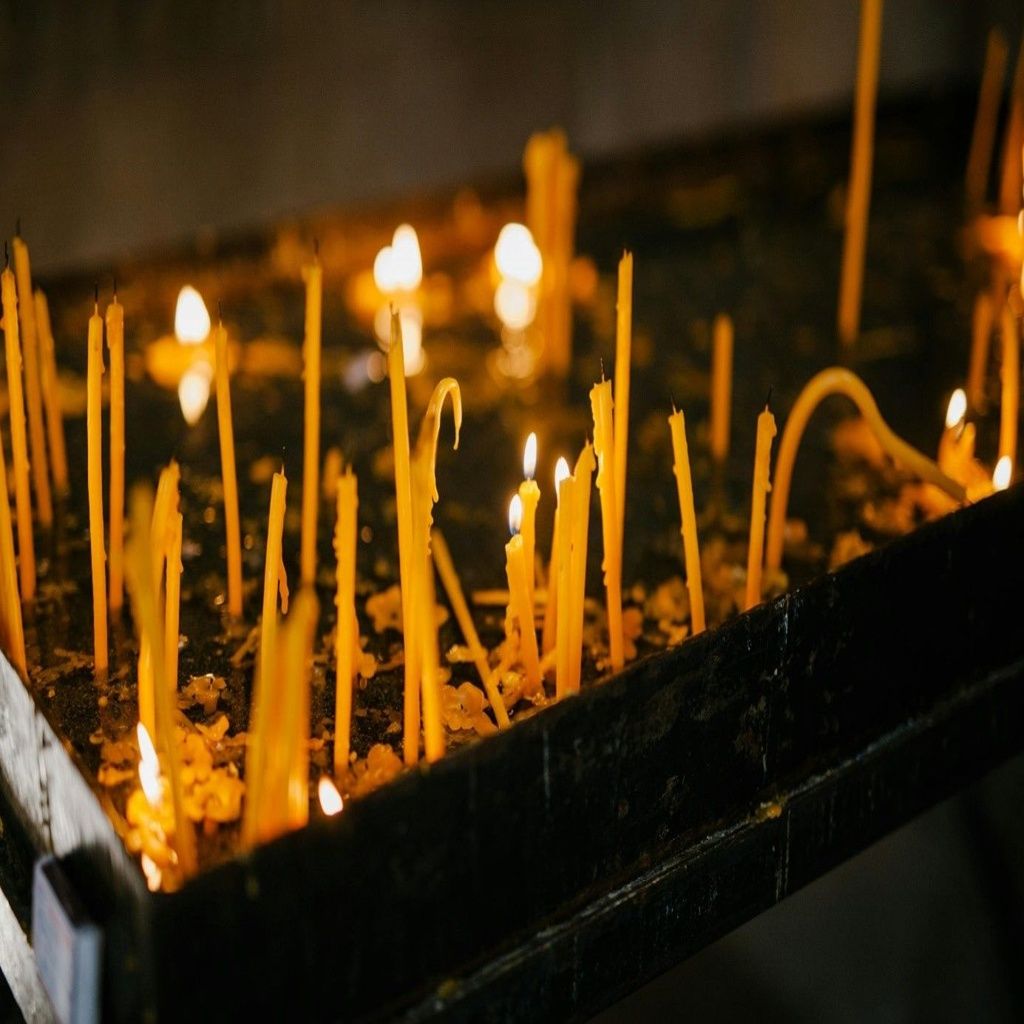Contents
In today’s society, many individuals seek meaning and fulfillment. Engaging with religion and spirituality can be beneficial in this pursuit. This blog post explores the similarities and differences between religion and spirituality, providing insights into how both can contribute to personal growth and positive change. Join us as we delve into the mystical world of spiritual enlightenment and gain new perspectives on your spiritual journey.
Introduction to Religion and Spirituality
Religion and spirituality are topics that are frequently discussed and considered in the modern world. While religion is often associated with organized belief systems and traditions that have evolved over centuries, spirituality refers more to the individual quest for meaning and connection with the transcendent. Both share a fundamental intent: exploring humanity in the context of the divine. In an era characterized by rapid change and growing secularization, religion and spirituality serve as crucial anchor points for identity, ethics, and hope. They offer paths for reflection, comfort, and inspiration, reflecting the diversity of human experiences with the sacred and emphasizing the deep longing for understanding, belonging, and ultimately enlightenment.

Historical Overview: Evolution of Religion and Spirituality.
The development of religion and spirituality dates back to prehistoric times when people worshipped nature and developed ritual actions to express awe and seek protection. These practices evolved into structured belief systems that formed the basis of world religions. Organized religions have established communal structures of rituals, myths, and ethical guidelines.
In parallel, spiritual movements have emerged outside of these structured religions in response to the need for a more personal and direct experience of the divine. Throughout the centuries, and especially in modern times, such movements have gained significance, prioritizing individual search and experience over dogmatic teachings. These spiritual currents, which range from mysticism to transcendentalism to modern New-Age movements, emphasize inner enlightenment, personal transformation, and the pursuit of a deeper understanding of the universe. They reflect the dynamic nature of human spirituality, which is constantly evolving and adapting to the needs and insights of the time.
Core Principles and Teachings
Religious beliefs are founded on fundamental principles that vary across traditions but often share common core points. These include the existence of a higher power, moral and ethical guidelines for human behavior, and concepts of life after death or reincarnation. These principles serve as a guide for believers to lead a life in harmony with the values deemed sacred.
Key concepts of spirituality emphasize an individual’s inner connection with the universe or divine essence, independent of specific religious contexts. Spirituality is characterized by practices and experiences aimed at self-development, enlightenment, and a deep understanding of the interconnectedness of all things. Its universal applicability lies in the personal nature of the spiritual quest, resonating across cultural and religious boundaries. Concepts such as mindfulness, meditation, and the law of attraction are examples of spiritual practices that aim to expand consciousness and promote well-being. They play a central role in many modern spiritual movements.
The Role of Mystical and Secret Traditions
Mystical and secret traditions have played a fascinating role in the development of religion and spirituality. These schools offer deep insights into the hidden aspects of the divine and human consciousness, often hidden from the public eye. They present paths to personal transformation through direct, inner experience of the sacred beyond the formal structures of organized religions.
Mystical schools, such as Sufism in Islam, Kabbalah in Judaism, and Christian mysticism, offer paths to divine knowledge through meditation, prayer, and contemplation. These traditions emphasize the immediate, personal experience of the divine, distinguishing them from the exoteric aspects of religions. They teach that behind the visible universe lies a deeper, spiritual reality accessible through inner purification and spiritual practice.
The significance of secret teachings and initiations in these traditions lies in the gradual revelation of knowledge and wisdom made available only to those deemed ready. These practices serve not only for spiritual refinement but also for preserving esoteric knowledge across time. The initiatory path marks important transitions on the spiritual journey.
In the modern world, these mystical and secret traditions offer alternative perspectives on religion and spirituality. They serve as a reminder that the pursuit of knowledge and enlightenment can take various forms, and that the spiritual search is often an inner journey that transcends dogmatic boundaries. Their teachings and practices enrich humanity’s spiritual heritage, offering individual paths to discovering one’s divine nature.
Spiritual Practices and Their Effects
Spiritual practices, such as meditation, prayer, and rituals, are essential tools on the path of personal transformation. They provide not only a framework for spiritual development but also have profound effects on consciousness and overall well-being.
Meditation allows individuals to leave behind the noise of everyday life and enter a state of deep peace and mindfulness. This practice promotes self-awareness and can significantly reduce stress and anxiety.
Through regular meditation, one can expand their consciousness and experience a sense of connection with the universe. In mystery schools such as the Hermetic Academy, students are gradually introduced to meditation practices, allowing them to experience the benefits from the very beginning.
Prayer is a form of communication with the divine, allowing individuals to express their hopes, gratitude, and concerns. This spiritual practice can provide comfort, strengthen hope, and contribute to a positive outlook on life.
Rituals, whether personal or communal, give structure and meaning to spiritual life. They mark important life transitions, honor the cyclic rhythms of nature and life, and create moments of reflection and renewal. The initiatory path effects genuine transformation and marks the stations on the way to enlightenment and unity.
These spiritual practices can transform consciousness and deepen one’s understanding of the self and their role in the cosmos. They can improve emotional balance, promote mental clarity, and support the pursuit of a fulfilled and harmonious life.
Religion and Spirituality in Daily Life
Integrating spiritual principles into daily life can lead to a deeply fulfilled life. This can be achieved through simple, conscious actions such as practicing gratitude, setting daily intentions, or spending time in nature to feel connected to the cosmos. These practices help individuals appreciate the present and foster a sense of connection with something greater than themselves.
A fulfilled life is also reflected in how one interacts with others, through compassion, empathy, and helpfulness. It involves valuing and actively implementing ethical values such as honesty and integrity in daily life. Additionally, incorporating regular meditation or prayer as a fixed part of the day can help find inner peace and clarity.
Applying spiritual principles in everyday life allows one to face challenges with serenity and promotes a positive attitude towards life. Such a lifestyle not only serves personal growth but also contributes to the well-being of the community by sowing seeds for a more compassionate and understanding world.
The search for community is a deeply rooted human need that is fulfilled in religious groups and spiritual communities. These communities offer not only a supportive network but also a platform for exchanging values, beliefs, and spiritual practices. Religion and spirituality can help individuals develop a sense of belonging and pursue spiritual growth.
Additionally, they can play a crucial role in addressing societal challenges by inspiring social engagement and humanitarian initiatives through values such as compassion, forgiveness, and solidarity. These values can motivate individuals and groups to advocate for justice, peace, and environmental protection. In times of growing societal alienation and polarization, religious and spiritual communities offer significant contributions to social cohesion and the promotion of the common good.
Paths to Enhance Your Spiritual Journey
To enhance your spiritual journey, there are numerous resources and guides available to assist you. Books, online courses, and workshops on topics such as meditation, mindfulness, yoga, and Hermeticism can provide valuable insights and techniques to enrich your practice. Podcasts and blogs on spiritual topics offer inspiration and a sense of community, even when practicing alone.
Mystery schools and academies hold great value in modern spiritual practice. They serve as guardians of ancient knowledge and offer structured curricula based on centuries-old traditions. Participating in their programs grants access to profound esoteric knowledge, practical guidance, and initiations that may be difficult to find elsewhere. These institutions also provide a unique opportunity to connect with like-minded individuals and receive guidance from experienced teachers.
Retreats and spiritual journeys can facilitate self-reflection and growth by providing an immersive experience in spiritual practices within a supportive and distraction-free environment. Combining self-directed learning, structured programs, and community experiences can greatly enhance and deepen one’s spiritual journey.
Conclusion: The Personal Journey of Faith and Enlightenment
The personal journey of faith and enlightenment is a profound and individual path marked by self-reflection, devotion, and the constant pursuit of knowledge. It requires openness, patience, and the willingness to explore both the outer world and the inner self. Each step on this path offers the opportunity for transformation, growth, and the discovery of deeper truths about the universe and our role within it. By connecting with spiritual principles, communities, and practices, this journey can lead to a life marked by inner peace, understanding, and a deep connection with all that exists.
Exploring the depths of religion and spirituality can inspire personal growth and lead to a richer, more conscious, and fulfilled life. Let us boldly walk this path of knowledge, open to the countless lessons and gifts that await us.
The Hermetic Academy offers a comprehensive range of courses and materials to support seekers on their path of personal and spiritual development. Their website can be a valuable resource for those exploring the fascinating path between religion and spirituality, providing an inspiring addition to the search for deeper understanding and community.





